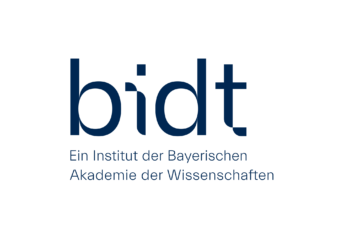Digital Health – PsychoSense
The Digital Health – PsychoSense research group aims to explore the potential of digital technologies in psychological research to better understand human psychology and behavior. Many psychological research areas still rely on “traditional” methods, such as laboratory protocols or the collection of self-reports or obtrusive, often invasive biomarkers which lack of digital solutions and might limit the advancements of these areas. Thus, our goal is to tackle this issue by working at the intersection of technology, health, and psychology. The research projects of our group include the development of mobile apps, wearable and contactless sensing paradigms, machine learning algorithms, or other digital platforms that can assist in the assessment, induction, or intervention of various psychological states. We also explore the use of virtual reality, biofeedback, and other novel technologies for enhancing emotional regulation, stress management, or cognitive performance.
In addition, we are strong advocates for open science and adopt a range of open science practices in our research. We want our research to be reproduced, built upon, and used in final applications. Thus, we develop and publish open-source software frameworks (for example, have a look here, here, or here) that enable other researchers to actually use our work to facilitate and advance their own research. Additionally, we also make our datasets and corresponding analyses available, aiming to help promote scientific rigor, reduce the risk of bias, and enable others to build on our group’s work. By embracing the principles of open science, our research group is contributing to a broader movement within the scientific community that seeks to promote greater transparency and accountability in research, while also promoting collaboration and innovation in scientific research.
Group Head
Group Members
Students
If you are interested in writing a Bachelor’s or Master’s thesis in our group, please check the lab’s Student Theses and Jobs.
- Annika Mücke
- Benjamin Zenke
stress+ – Development and Evaluation of a Web Application for Remote, Internet-based Induction of Acute Psychosocial Stress - Clark Bäker
Improving the robustness of radar-based heart sound detection - Daniel Krauß
Benchmarking of Sleep/Wake Detection Algorithms using Wearable Sensors and Machine Learning - Friederike Popp
Towards frailty assessment in older adults: Investigation of sit-to-stand transfer detection using ear-worn sensors in real-world activities - Jana Reinwald
Triggering an endocrine stress response in the Virtual Reality Stroop Room through social-evaluative stress - Leon Schmid
Analyzing Acute Psychosocial Stress Responses: A Video-Based Motion Analysis Approach - Liv Herzer
- Luca Abel
Machine Learning-Based Detection of Acute Psychosocial Stress from Dynamic Movements - Michaela Hofmann
Defensive freezing reaction: The effect of acute psychosocial stress on body movement and heart rate - Paula Kaiser
Influence of Social-Evaluative Stress in the Virtual Reality Stroop Room - Philipp Dörfler
Comparison of Algorithms for Respiratory Information Extraction from Wearable Sensors - Robert Schröter
Improving the CARWatch Framework for Objective Cortisol Awakening Response Assessment - Sebastian Stühler
Investigation of the Pre-Ejection Period as a Marker for Sympathetic Activity during Acute Psychosocial Stress - Simon Meske
Improving the Robustness of Heart Rate Estimation from Continuous-Wave Radar Data using a Wavelet-based Approach and Deep Learning - Tobias Gessler
OpenTSST – An Open Web Platform for Large-Scale, Video-Based Motion Analysis During Acute Psychosocial Stress - Ulla Sternemann
Extraction of Pre-Ejection Period as Marker for Acute Psychosocial Stress from Wearable Sensors and Interferometry Radar - Veronika Koch
Influence of Acute Psychosocial Stress on Body Posture and Movement - Victoria Müller
Machine Learning-Based Detection of Acute Psychosocial Stress from Digital Biomarkers
Projects
- Empathokinesthetic sensors for biofeedback in depressed patients (D02)
- Contactless measurement of stress, its determinants, and consequences (D03)
- InterFEARence – Contactless assessment of feared movements in persons with chronic back pain
- Machine Learning in Health Psychology
- Novel Methods for (Remote) Acute Stress Induction
- Interventions for Acute Psychosocial Stress Responses
- BioPsyKit – A Python Package for the Analysis of Biopsychological Data
- CARWatch – An Open-Source Framework for Improving Cortisol Awakening Response Sampling
- Empathokinaesthetic Measurement and Movement Pattern Recognition as Biomarkers for Health Status and Prognosis of Palliative Care Patients (D05)
- Digitalisierungskolleg – Applied Data Science in Digital Psychology
2025
- Heuler A., Hebel I., Richer R., Rohleder N., Barke A., Weise C.:
Sensor-based Measurement of Fear Avoidance in Chronic Primary Low Back Pain: A Study Protocol
4. Deutscher Psychotherapiekongress (Berlin, 7. April 2025 - 11. April 2025)
BibTeX: Download - Rahimi F., Badamchizadeh MA., Simpetru R., Ghaemi S., Eskofier B., Del Vecchio A.:
Simultaneous Control of Human Hand Joint Positions and Grip Force via HD-EMG and Deep Learning
(2025)
BibTeX: Download
2024
- Abel L., Richer R., Hauck F., Kurz M., Ringgold V., Schindler-Gmelch L., Eskofier B., Rohleder N.:
Does acute stress exposure change gait patterns?
DOI: 10.1016/j.psyneuen.2023.106818
BibTeX: Download - Albrecht N., Langer D., Krauß D., Richer R., Abel L., Eskofier B., Rohleder N., Kölpin A.:
EmRad: Ubiquitous Vital Sign Sensing using Compact Continuous-Wave Radars
In: IEEE Open Journal of Engineering in Medicine and Biology (2024), p. 1-10
ISSN: 2644-1276
DOI: 10.1109/OJEMB.2024.3420241
URL: https://ieeexplore.ieee.org/document/10577086
BibTeX: Download - Fleischmann S., Holzwarth Correa V., Coppers B., Sadeghi M., Richer R., Kleyer A., Simon D., Bräunig J., Vossiek M., Schönau V., Schett G., Koelewijn A., Leyendecker S., Eskofier B., Liphardt AM.:
Classification of rheumatoid arthritis from hand motion capture data using machine learning
13. Kongress der Deutschen Gesellschaft für Biomechanik (DGfB) (Heidelberg, 24. April 2024 - 26. April 2024)
BibTeX: Download - Grießhammer S., Malessa A., Lu H., Yip J., Leuschner J., Christgau F., Albrecht NC., Oesten M., Tran TT., Richer R., Heckel M., Eskofier B., Kölpin A., Steigleder T., Ostgathe C.:
Contactless radar-based heart rate estimation in palliative care – a feasibility study and possible use in symptom management
In: BMC Palliative Care 23 (2024), Article No.: 273
ISSN: 1472-684X
DOI: 10.1186/s12904-024-01592-3
BibTeX: Download - Keinert M., Schindler-Gmelch L., Rupp L., Sadeghi M., Capito K., Hager M., Rahimi F., Richer R., Egger B., Eskofier B., Berking M.:
Facing depression: evaluating the efficacy of the EmpkinS-EKSpression reappraisal training augmented with facial expressions – protocol of a randomized controlled trial
In: BMC Psychiatry 24 (2024), Article No.: 896
ISSN: 1471-244X
DOI: 10.1186/s12888-024-06361-3
URL: https://bmcpsychiatry.biomedcentral.com/articles/10.1186/s12888-024-06361-3
BibTeX: Download - Krauß D., Engel L., Ott T., Bräunig J., Richer R., Gambietz M., Albrecht N., Hille EM., Ullmann I., Braun M., Dabrock P., Kölpin A., Koelewijn A., Eskofier B., Vossiek M.:
A Review and Tutorial on Machine Learning- Enabled Radar-Based Biomedical Monitoring
In: IEEE Open Journal of Engineering in Medicine and Biology (2024), p. 1-22
ISSN: 2644-1276
DOI: 10.1109/OJEMB.2024.3397208
BibTeX: Download - Kurz M., Richer R., Abel L., Hauck F., Ringgold V., Schindler-Gmelch L., Eskofier B., Rohleder N.:
f-TSST+: An extension to the friendly Trier Social Stress Test that enables better behavioral comparability during acute psychosocial stress
DOI: 10.1016/j.psyneuen.2023.106862
BibTeX: Download - Küderle A., Ullrich M., Roth N., Ollenschläger M., Ibrahim A., Moradi H., Richer R., Seifer AK., Zürl M., Simpetru R., Herzer L., Prossel D., Kluge F., Eskofier B.:
Gaitmap – An Open Ecosystem for IMU-based Human Gait Analysis and Algorithm Benchmarking
In: IEEE Open Journal of Engineering in Medicine and Biology (2024), p. 1-10
ISSN: 2644-1276
DOI: 10.1109/OJEMB.2024.3356791
BibTeX: Download - Rahimi F., Badamchizadeh MA., Ghaemi S., Del Vecchio A.:
Simultaneous Estimation of Digit Tip Forces and Hand Postures in a Simulated Real-life Condition with High-density Electromyography and Deep Learning
In: IEEE Journal of Biomedical and Health Informatics 28 (2024), p. 1-8
ISSN: 2168-2194
DOI: 10.1109/JBHI.2024.3350239
BibTeX: Download - Rahimi F., Badamchizadeh MA., Ghaemi S., Del Vecchio A.:
Simultaneous Estimation of Digit Tip Forces and Hand Postures in a Simulated Real-Life Condition With High-Density Electromyography and Deep Learning
In: IEEE Journal of Biomedical and Health Informatics 28 (2024), p. 5708-5717
ISSN: 2168-2194
DOI: 10.1109/JBHI.2024.3350239
BibTeX: Download - Richer R., Abel L., Mücke A., Küderle A., Eskofier B., Rohleder N.:
CARWatch – An Open-Source Framework for Objective Cortisol Awakening Response Assessment
DOI: 10.1016/j.psyneuen.2023.106845
BibTeX: Download - Richer R., Koch V., Abel L., Hauck F., Kurz M., Ringgold V., Müller V., Küderle A., Schindler-Gmelch L., Eskofier B., Rohleder N.:
Machine learning-based detection of acute psychosocial stress from body posture and movements
In: Scientific Reports 14 (2024), Article No.: 8251
ISSN: 2045-2322
DOI: 10.1038/s41598-024-59043-1
URL: https://www.nature.com/articles/s41598-024-59043-1
BibTeX: Download - Richer R., Varkentin E., Kurmanbekova K., Müller V., Abel L., Ringgold V., Küderle A., Brich I., Rohleder N., Eskofier B.:
Stress+ – Towards an Open-Source Web Application for the Remote Induction of Acute Psychosocial Stress
DOI: 10.1016/j.psyneuen.2023.106870
BibTeX: Download - Richer R., Zenkner JJ., Küderle A., Rohleder N., Eskofier B.:
Lower Vagal Response to the Cold Face Test during Acute Psychosocial Stress is Associated with Higher Cortisol Reactivity
DOI: 10.1016/j.psyneuen.2023.106871
BibTeX: Download - Ringgold V., Shields GS., Hauck F., Kurz M., Schindler-Gmelch L., Abel L., Richer R., Eskofier B., Rohleder N.:
The Short Stress State Questionnaire in German (SSSQ-G)
In: European Journal of Health Psychology 31 (2024), p. 189-200
ISSN: 2512-8442
DOI: 10.1027/2512-8442/a000160
BibTeX: Download - Sadeghi M., Egger B., Agahi R., Richer R., Capito K., Rupp L., Gmelch LM., Berking M., Eskofier B.:
Exploring the Capabilities of a Language Model-Only Approach for Depression Detection in Text Data
Deutscher Psychotherapiekongress (DPK) (Berlin, 11. June 2024 - 15. June 2024)
URL: https://www.dgps.de/fileadmin/user_upload/PDF/Pressemitteilungen/DGPs-Pressemitteilung_DPK2024_20241606.pdf
BibTeX: Download - Sadeghi M., Richer R., Egger B., Schindler-Gmelch L., Rupp L., Rahimi F., Berking M., Eskofier B.:
Harnessing multimodal approaches for depression detection using large language models and facial expressions
In: npj Mental Health Research 3 (2024), p. 66
ISSN: 2731-4251
DOI: 10.1038/s44184-024-00112-8
URL: https://www.nature.com/articles/s44184-024-00112-8
BibTeX: Download - Schmidt M., Sadeghi M., Rahimi F., Eskofier B., Buglagil A., Schmauß B., Carlowitz C.:
Realtime Laser Beam Steering and Calibration Method for Coherent Biomedical Distance and Motion Sensing
CLEO: Science and Innovations in CLEO 2024, CLEO: S and I 2024 - Part of Conference on Lasers and Electro-Optics (Charlotte, NC, USA, 5. May 2024 - 10. May 2024)
In: CLEO: Science and Innovations, CLEO: S and I 2024 in Proceedings CLEO 2024, Part of Conference on Lasers and Electro-Optics 2024
BibTeX: Download
2023
- Bräunig J., Mejdani D., Krauß D., Grießhammer S., Richer R., Schüßler C., Yip J., Steigleder T., Ostgathe C., Eskofier B., Vossiek M.:
Radar-based Recognition of Activities of Daily Living in the Palliative Care Context Using Deep Learning
2023 IEEE EMBS International Conference on Biomedical and Health Informatics (BHI) (Pittsburgh, 15. October 2023 - 18. October 2023)
In: 2023 IEEE EMBS International Conference on Biomedical and Health Informatics (BHI), New York City: 2023
DOI: 10.1109/BHI58575.2023.10313506
URL: https://www.mad.tf.fau.de/files/2023/12/braeunig23_radar_palliative_care.pdf
BibTeX: Download - Flaucher M., Zakreuskaya A., Jäger K., Richer R., Smeddinck JD., Kumar D., Grimme S., Klein J., Hrynyschyn R., Eskofier B., Leutheuser H.:
Your Health, Your Data: Combining Interdisciplinary Views, Concepts, and Practices to Empower Patients in Their Engagement With Personal Health Data
Mensch und Computer 2023 (Rapperswil, 3. September 2023 - 6. September 2023)
In: Workshopband 2023
DOI: 10.18420/muc2023-mci-ws14-117
BibTeX: Download - Krauß D., Richer R., Albrecht NC., Küderle A., Abel L., Leutheuser H., Jukic J., German A., Kölpin A., Winkler J., Eskofier B.:
Contactless Heart Rate Estimation using a 61 GHz Continuous-Wave Radar
IEEE-EMBS International Conference on Body Sensor Networks: Sensor and Systems for Digital Health (MIT Media Lab, Boston MA, 9. October 2023 - 11. October 2023)
BibTeX: Download - Küderle A., Richer R., Simpetru R., Eskofier B.:
tpcp: Tiny Pipelines for Complex Problems - A set of framework independent helpers for algorithms development and evaluation
In: Journal of Open Source Software 8 (2023), p. 4953
ISSN: 2475-9066
DOI: 10.21105/joss.04953
URL: https://joss.theoj.org/papers/10.21105/joss.04953
BibTeX: Download - Oesten M., Richer R., Abel L., Rohleder N., Eskofier B.:
VoStress – Voice-based Detection of Acute Psychosocial Stress
2023 IEEE EMBS International Conference on Biomedical and Health Informatics (BHI) (Pittsburgh, 15. October 2023 - 18. October 2023)
In: 2023 IEEE EMBS International Conference on Biomedical and Health Informatics (BHI) 2023
DOI: 10.1109/BHI58575.2023.10313458
URL: https://www.mad.tf.fau.de/files/2023/12/oesten23_stress_detection_voice.pdf
BibTeX: Download - Richer R., Abel L., Küderle A., Eskofier B., Rohleder N.:
CARWatch – A smartphone application for improving the accuracy of cortisol awakening response sampling
In: Psychoneuroendocrinology 151 (2023), p. 106073
ISSN: 0306-4530
DOI: 10.1016/j.psyneuen.2023.106073
URL: https://www.sciencedirect.com/science/article/abs/pii/S0306453023000513
BibTeX: Download - Richer R., Geßler T., Herzer L., Abel L., Küderle A., Rohleder N., Eskofier B.:
openTSST – An open web platform for large-scale, video-based motion analysis during acute psychosocial stress
IEEE-EMBS International Conference on Body Sensor Networks: Sensor and Systems for Digital Health (MIT Media Lab, Boston, MA, 9. October 2023 - 11. October 2023)
BibTeX: Download - Rupp L., Capito K., Gmelch LM., Böhme S., Richer R., Sadeghi M., Rahimi F., Abel L., Eskofier B., Berking M.:
Efficacy of a smartphone-based reappraisal training against depression and benefits of enhancing it with facial expression
Society for Psychotherapie Research 54th International Annual Meeting (Dublin)
BibTeX: Download - Sadeghi M., Egger B., Agahi R., Richer R., Capito K., Rupp L., Gmelch LM., Berking M., Eskofier B.:
Exploring the Capabilities of a Language Model-Only Approach for Depression Detection in Text Data
IEEE EMBS International Conference on Biomedical and Health Informatics (BHI) 2023 (Pittsburgh, PA, USA, 15. October 2023 - 18. October 2023)
In: IEEE EMBS International Conference on Biomedical and Health Informatics (BHI) 2023
DOI: 10.1109/BHI58575.2023.10313367
URL: https://ieeexplore.ieee.org/document/10313367
BibTeX: Download - Seifer AK., Popp F., Richer R., Gaßner H., Eskofier B.:
Improving the Robustness of IMU-based Sit-To-Stand Detection during Simulated Real-World Activities for Different Sensor Positions
IEEE Biomedical and Health Informatics Conference (Pittsburgh, 15. October 2023 - 18. October 2023)
BibTeX: Download - Ullrich M., Roth N., Küderle A., Richer R., Gladow T., Gaßner H., Marxreiter F., Klucken J., Eskofier B., Kluge F.:
Fall Risk Prediction in Parkinson's Disease Using Real-World Inertial Sensor Gait Data.
In: IEEE Journal of Biomedical and Health Informatics 27 (2023), p. 319-328
ISSN: 2168-2194
DOI: 10.1109/JBHI.2022.3215921
BibTeX: Download - Vorberg L., Pflüger S., Richer R., Jäger K., Küderle A., Rohleder N., Eskofier B.:
Prediction of Stress Coping Capabilities from Nightly Heart Rate Patterns using Machine Learning
2023 IEEE EMBS International Conference on Biomedical and Health Informatics (BHI) (Pittsburgh, 15. October 2023 - 18. October 2023)
In: 2023 IEEE EMBS International Conference on Biomedical and Health Informatics (BHI) 2023
DOI: 10.1109/BHI58575.2023.10313401
URL: https://www.mad.tf.fau.de/files/2023/12/vorberg_pflueger23_stress_coping_nightly_hr.pdf
BibTeX: Download
2022
- Capito K., Gmelch LM., Rupp L., Sadeghi M., Eskofier B., Berking M.:
Efficacy of a smartphone-based reappraisal training against depressed mood and benefits of enhancing it with facial expression–a feasibility study
Deutscher Psychotherapiekongress (Berlin, 7. June 2022 - 11. June 2022)
BibTeX: Download - Gmelch LM., Böhme S., Capito K., Rupp L., Richer R., Sadeghi M., Eskofier B., Berking M.:
EmpkinS - Empathokinästhetische Sensorik für Biofeedback bei Depression
Deutscher Psychotherapiekongress (DPK) (Berlin, 7. June 2022 - 11. June 2022)
URL: https://deutscher-psychotherapie-kongress.de/wp-content/uploads/2022/06/web_Programm_DPK2022_SS_09062022_final.pdf
BibTeX: Download - Gmelch LM., Capito K., Rupp L., Richer R., Sadeghi M., Eskofier B., Berking M., Böhme S.:
EmpkinS: empatho-kinesthetic sensory systems for biofeedback in depression
EmpkinS: empatho-kinesthetic sensory systems for biofeedback in depression (Freiburg, 16. June 2022 - 18. June 2022)
BibTeX: Download - Herzer L., Mücke A., Richer R., Albrecht NC., Heyder M., Jäger K., König V., Koelpin A., Rohleder N., Eskofier B.:
Influence of Sensor Position and Body Movements on Radar-Based Heart Rate Monitoring
2022 IEEE-EMBS International Conference on Biomedical and Health Informatics (BHI) (Ioannina, 27. September 2022 - 30. September 2022)
DOI: 10.1109/BHI56158.2022.9926775
URL: https://www.mad.tf.fau.de/files/2022/11/herzer_muecke22_validation_mis.pdf
BibTeX: Download - Jäger K., Nissen M., Richer R., Rahm S., Titzmann A., Fasching P., Eskofier B., Leutheuser H.:
Machine Learning-based Detection of In-Utero Fetal Presentation from Non-Invasive Fetal ECG
2022 IEEE-EMBS International Conference on Biomedical and Health Informatics (BHI) (Ioannina, 27. September 2022 - 30. September 2022)
DOI: 10.1109/BHI56158.2022.9926804
BibTeX: Download - Krauß D., Richer R., Küderle A., Beilner J., Rohleder N., Eskofier B.:
Benchmarking of Sleep/Wake Detection Algorithms on a Large Cohort using Actigraphy, HRV, and Respiration Information
IEEE-EMBS International Conference on Biomedical and Health Informatics (Ioaninna, 26. September 2022 - 30. September 2022)
BibTeX: Download - Krauß D., Richer R., Küderle A., Rohleder N., Eskofier B.:
Towards Integration of Sleep Quality in Sports Monitoring – Improving Wearable Sleep Detection Algorithms through Respiratory Information
13th World Congress of Performance Analysis of Sport 2022 & 13th International Symposium on Computer Science in Sport 2022 (Wien, 10. September 2022 - 13. September 2022)
BibTeX: Download - Küderle A., Roth N., Richer R., Eskofier B.:
imucal - A Python library to calibrate 6 DOF IMUs
In: Journal of Open Source Software 7 (2022), p. 4338
ISSN: 2475-9066
DOI: 10.21105/joss.04338
URL: https://www.theoj.org/joss-papers/joss.04338/10.21105.joss.04338.pdf
BibTeX: Download - Müller V., Richer R., Henrich L., Berger L., Gelardi A., Jäger K., Eskofier B., Rohleder N.:
The Stroop Competition: A Social-Evaluative Stroop Test for Acute Stress Induction
IEEE-EMBS International Conference on Biomedical and Health Informatics (BHI) (Ioannina, 27. September 2022 - 30. September 2022)
DOI: 10.1109/BHI56158.2022.9926835
URL: https://www.mad.tf.fau.de/files/2022/11/mueller22_stroop_competition.pdf
BibTeX: Download - Müller V., Richer R., Jäger K., Henrich L., Berger L., Gelardi A., Eskofier B., Rohleder N.:
The Stroop Competition: A Social-Evaluative Stroop Test For Acute Stress Induction
79th Annual Scientific Meeting of the American Psychosomatic Society (Long Beach, CA, 23. March 2022 - 26. March 2022)
In: Lippincott Williams & Wilkins (ed.): Psychosomatic Medicine, PHILADELPHIA: 2022
DOI: 10.1109/bhi56158.2022.9926835
BibTeX: Download - Richer R., Koch V., Küderle A., Müller V., Wirth V., Stamminger M., Rohleder N., Eskofier B.:
Detection of Acute Psychosocial Stress from Body Movements using Machine Learning
79th Annual Scientific Meeting of the American Psychosomatic Society (Long Beach, CA, 23. March 2022 - 26. March 2022)
In: Lippincott Williams & Wilkins (ed.): Psychosomatic Medicine 2022
BibTeX: Download - Richer R., Zenkner JJ., Küderle A., Rohleder N., Eskofier B.:
Exploring the Cold Face Test as a Mechanism for Reducing Acute Psychosocial Stress Responses
79th Annual Scientific Meeting of the American Psychosomatic Society (Long Beach, CA, 23. March 2022 - 26. March 2022)
In: Lippincott Williams & Wilkins (ed.): Psychosomatic Medicine 2022
BibTeX: Download - Richer R., Zenkner JJ., Küderle A., Rohleder N., Eskofier B.:
Vagus activation by Cold Face Test reduces acute psychosocial stress responses
In: Scientific Reports 12 (2022), Article No.: 19270
ISSN: 2045-2322
DOI: 10.1038/s41598-022-23222-9
URL: https://www.nature.com/articles/s41598-022-23222-9
BibTeX: Download - Rohleder N., Richer R., Koch V., Küderle A., Müller V., Wirth V., Stamminger M., Eskofier B.:
Effect of Acute Psychosocial Stress on Body Movements
79th Annual Scientific Meeting of the American Psychosomatic Society (Long Beach, CA, 23. March 2022 - 26. March 2022)
In: Lippincott Williams & Wilkins (ed.): Psychosomatic Medicine 2022
BibTeX: Download - Ullrich M., Roth N., Küderle A., Richer R., Gladow T., Gaßner H., Marxreiter F., Klucken J., Eskofier B., Kluge F.:
Fall Risk Prediction in Parkinson’s Disease Using Real-World Inertial Sensor Gait Data
In: IEEE Transactions on Neural Systems and Rehabilitation Engineering (2022)
ISSN: 1534-4320
DOI: 10.1109/jbhi.2022.3215921
URL: https://ieeexplore.ieee.org/document/9924545
BibTeX: Download - Vorberg L., Pflüger S., Richer R., Jäger K., Küderle A., Nassall K., Eskofier B., Rohleder N.:
Prediction of Stress Coping Capabilities from Nightly Heart Rate Patterns Using Machine Learning
79th Annual Scientific Meeting of the American Psychosomatic Society (Long Beach, CA, 23. March 2022 - 26. March 2022)
In: Lippincott Williams & Wilkins (ed.): Psychosomatic Medicine, PHILADELPHIA: 2022
BibTeX: Download - Weber N., Lennartz R., Knitza J., Bayat S., Sadeghi M., Ibrahim A., Karatastan C., Sudhakar A., Ramzezanzadegan N., Kahali S., Mirzayev A., Schuster L., Schett G., Eskofier B., Kleyer A.:
AB1528-HPR FULL BODY HAPTIC BODYSUIT - AN INSTRUMENT TO MEASURE THE RANGE AND SPEED OF MOTION IN PATIENTS WITH AXIAL SPONDYLOARTHRITIS (axSpA) - PRELIMINARY RESULTS
In: Annals of the Rheumatic Diseases 81 (2022), p. 1866.2-1867
ISSN: 0003-4967
DOI: 10.1136/annrheumdis-2022-eular.3069
BibTeX: Download
2021
- Happold J., Richer R., Küderle A., Gaßner H., Klucken J., Eskofier B., Kluge F.:
Evaluation of Orthostatic Reactions in Real-World Environments Using Wearable Sensors
2021 43rd Annual International Conference of the IEEE Engineering in Medicine & Biology Society (EMBC) (, 1. November 2021 - 5. November 2021)
DOI: 10.1109/EMBC46164.2021.9630842
URL: https://www.mad.tf.fau.de/files/2021/12/happold21_vertigo_home.pdf
BibTeX: Download - Richer R., Küderle A., Dörr J., Rohleder N., Eskofier B.:
Assessing the Influence of the Inner Clock on the Cortisol Awakening Response and Pre-Awakening Movement
2021 IEEE EMBS International Conference on Biomedical and Health Informatics (BHI) (Athens, 28. July 2021 - 30. July 2021)
In: IEEE (ed.): 2021 IEEE EMBS International Conference on Biomedical and Health Informatics (BHI) 2021
DOI: 10.1109/BHI50953.2021.9508529
URL: https://www.mad.tf.fau.de/files/2021/08/richer21_car_inner_clock.pdf
BibTeX: Download - Richer R., Küderle A., Ullrich M., Rohleder N., Eskofier B.:
BioPsyKit: A Python package for the analysis of biopsychological data
In: Journal of Open Source Software 6 (2021), p. 3702
ISSN: 2475-9066
DOI: 10.21105/joss.03702
URL: https://www.theoj.org/joss-papers/joss.03702/10.21105.joss.03702.pdf
BibTeX: Download - Zhao N., Seitinger S., Richer R., Paradiso JA.:
Real-time Work Environment Optimization using Multimodal Media and Body Sensor Network
In: Smart Health 19 (2021), p. 100164
ISSN: 2352-6483
DOI: 10.1016/j.smhl.2020.100164
BibTeX: Download
2020
- Auferoth F., Eskofier B., Gerber L., Grimm V., Richer R., Rohleder N.:
Tracking and Teamwork Performance
(2020)
BibTeX: Download
(Working Paper) - Raccagni C., Sidoroff V., Goebel G., Granata R., Leys F., Klucken J., Eskofier B., Richer R., Seppi K., Wenning GK., Fanciulli A.:
The footprint of orthostatic hypotension in parkinsonian syndromes
In: Parkinsonism & Related Disorders (2020)
ISSN: 1353-8020
DOI: 10.1016/j.parkreldis.2020.06.029
BibTeX: Download - Richer R., Zhao N., Eskofier B., Paradiso JA.:
Exploring Smart Agents for the Interaction with Multimodal Mediated Environments
In: Multimodal Technologies and Interaction 4 (2020), Article No.: 27
ISSN: 2414-4088
DOI: 10.3390/mti4020027
URL: https://www.mdpi.com/2414-4088/4/2/27
BibTeX: Download
2019
- Abel L., Richer R., Küderle A., Gradl S., Eskofier B., Rohleder N.:
Classification of Acute Stress-Induced Response Patterns
EAI International Conference on Pervasive Computing Technologies for Healthcare (PervasiveHealth '19) (Trento, 20. May 2019 - 23. May 2019)
DOI: 10.1145/3329189.3329231
URL: https://www.mad.tf.fau.de/files/2019/05/2019-Abel-PervasiveHealth-StressResponsePatterns.pdf
BibTeX: Download - Amores J., Fuste A., Richer R.:
Deep Reality: Towards Increasing Relaxation in VR by Subtly Changing Light, Sound and Movement Based on HR, EDA, and EEG
ACM Conference on Human Factors in Computing Systems (CHI 2019) (Glasgow, 4. May 2019 - 9. May 2019)
In: ACM (ed.): CHI 2019 Video Showcase 2019
DOI: 10.1145/3290607.3311770
URL: https://www.mad.tf.fau.de/files/2019/05/2019-Amores-CHI-DeepReality.pdf
BibTeX: Download - Amores J., Fuste A., Richer R., Maes P.:
Deep Reality: An Underwater VR Experience to Promote Relaxation by Unconscious HR, EDA, and Brain Activity Biofeedback
SIGGRAPH '19: ACM SIGGRAPH 2019 Virtual, Augmented, and Mixed Reality (Los Angeles, 28. July 2019 - 1. August 2019)
In: ACM (ed.): SIGGRAPH '19: ACM SIGGRAPH 2019 Virtual, Augmented, and Mixed Reality 2019
DOI: 10.1145/3306449.3328818
URL: https://www.mad.tf.fau.de/files/2020/01/2019-Amores-SIGGRAPH-DeepReality.pdf
BibTeX: Download - Gradl S., Wirth M., Richer R., Rohleder N., Eskofier B.:
An Overview of the Feasibility of Permanent, Real-Time, Unobtrusive Stress Measurement with Current Wearables
EAI International Conference on Pervasive Computing Technologies for Healthcare (PervasiveHealth '19) (Trento, 20. May 2019 - 23. May 2019)
DOI: 10.1145/3329189.3329233
URL: https://www.mad.tf.fau.de/files/2019/05/Gradl-Wirth-2019-PervasiveHealth-StressMeasurementOverview.pdf
BibTeX: Download - Sadeghi M., Razavi SA., Saheb Zamani M.:
Reducing Reconfiguration Time in FPGAs
27th Iranian Conference on Electrical Engineering (ICEE) (Yazd, Iran, 30. April 2019 - 2. May 2019)
In: Iranian Conference on Electrical Engineering (ICEE), 2019 27th Iranian Conference on Electrical Engineering (ICEE): 2019
DOI: 10.1109/IranianCEE.2019.8786689
URL: https://ieeexplore.ieee.org/abstract/document/8786689
BibTeX: Download - Zrenner M., Feldner C., Jensen U., Richer R., Roth N., Eskofier B.:
Evaluation of foot kinematics during endurance running on different surfaces in real-world environments
DOI: 10.1007/978-3-030-35048-2_13
BibTeX: Download
2018
- Amores J., Richer R., Zhao N., Maes P., Eskofier B.:
Promoting Relaxation Using Virtual Reality, Olfactory Interfaces and Wearable EEG
2018 IEEE 15th International Conference on Wearable and Implantable Body Sensor Networks (BSN) (Las Vegas, NV, 4. March 2018 - 7. March 2018)
In: IEEE (ed.): 2018 IEEE 15th International Conference on Wearable and Implantable Body Sensor Networks (BSN) 2018
DOI: 10.1109/BSN.2018.8329668
URL: https://www.mad.tf.fau.de/files/2018/04/2018-Amores-BSN-PRVR.pdf
BibTeX: Download - Richer R., Zhao N., Amores J., Eskofier B., Paradiso JA.:
Real-time Mental State Recognition using a Wearable EEG
40th International Engineering in Medicine and Biology Conference (EMBC) (Honolulu, Hawaii, 17. July 2018 - 21. July 2018)
DOI: 10.1109/embc.2018.8513653
URL: https://www.mad.tf.fau.de/files/2019/02/2018-Richer-EMBC-MentalStateEEG.pdf
BibTeX: Download - Stefke A., Wilm F., Richer R., Gradl S., Eskofier B., Forster C., Namer B.:
"MigraineMonitor" – Towards a System for the Prediction of Migraine Attacks using Electrostimulation
52th Annual Conference of the German Society for Biomedical Engineering (VDE|DGBMT) (Aachen, 26. September 2018 - 28. September 2018)
In: Current Directions in Biomedical Engineering 2018
DOI: 10.1515/cdbme-2018-0151
URL: https://www.mad.tf.fau.de/files/2018/09/2018-StefkeWilm-DGBMT-MigraineMonitor.pdf
BibTeX: Download - Wirth M., Gradl S., Poimann D., Richer R., Ottmann J., Eskofier B.:
Exploring the Feasibility of EMG Based Interaction for Assessing Cognitive Capacity in Virtual Reality
40th Annual International Conference of the IEEE Engineering in Medicine and Biology Society, EMBC 2018 (Honolulu, HI, USA, 18. July 2018 - 21. July 2018)
In: Proceedings of the Annual International Conference of the IEEE Engineering in Medicine and Biology Society, EMBS 2018
DOI: 10.1109/EMBC.2018.8513213
BibTeX: Download
2017
- Gradl S., Cibis T., Lauber J., Richer R., Rybalko R., Pfeiffer N., Leutheuser H., Wirth M., von Tscharner V., Eskofier B.:
Wearable Current-Based ECG Monitoring System with Non-Insulated Electrodes for Underwater Application
In: Applied Sciences 7 (2017), Article No.: 1277
ISSN: 2076-3417
DOI: 10.3390/app7121277
BibTeX: Download
2016
- Richer R., Groh B., Blank P., Dorschky E., Martindale C., Klucken J., Eskofier B.:
Unobtrusive Real-time Heart Rate Variability Analysis for the Detection of Orthostatic Dysregulation
2016 IEEE 13th International Conference on Wearable and Implantable Body Sensor Networks (BSN) (San Francisco, CA, 14. June 2016 - 17. June 2016)
In: IEEE (ed.): 2016 IEEE 13th International Conference on Wearable and Implantable Body Sensor Networks (BSN) 2016
DOI: 10.1109/BSN.2016.7516257
URL: https://www.mad.tf.fau.de/files/2017/06/2016-Richer-BSN-URH.pdf
BibTeX: Download
2015
- Mullan P., Kanzler C., Lorch B., Schroeder L., Winkler L., Larissa L., Riedel F., Richer R., Luckner C., Leutheuser H., Eskofier B., Pasluosta CF.:
Unobtrusive Heart Rate Estimation during Physical Exercise using Photoplethysmographic and Acceleration Data
37th Annual International Conference of the IEEE Engineering in Medicine and Biology Society EMBC ’15 (Milano)
In: 37th Annual International Conference of the IEEE Engineering in Medicine and Biology Society EMBC ’15 2015
BibTeX: Download - Richer R., Maiwald T., Pasluosta CF., Hensel B., Eskofier B.:
Novel Human Computer Interaction Principles for Cardiac Feedback using Google Glass and Android Wear
2015 IEEE 12th International Conference on Wearable and Implantable Body Sensor Networks (BSN) (Cambridge, MA, 9. June 2015 - 12. June 2015)
In: IEEE (ed.): 2015 IEEE 12th International Conference on Wearable and Implantable Body Sensor Networks (BSN) 2015
DOI: 10.1109/BSN.2015.7299363
URL: https://www.mad.tf.fau.de/files/2018/04/2015-Richer-BSN-DailyHeart.pdf
BibTeX: Download
2014
- Richer R., Blank P., Schuldhaus D., Eskofier B.:
Real-Time ECG and EMG Analysis for Biking Using Android-Based Mobile Devices
2014 IEEE 11th International Conference on Wearable and Implantable Body Sensor Networks (BSN) (Zürich, 16. June 2014 - 19. June 2014)
In: 2014 IEEE 11th International Conference on Wearable and Implantable Body Sensor Networks (BSN) 2014
DOI: 10.1109/BSN.2014.20
URL: https://www.mad.tf.fau.de/files/2018/04/2014-Richer-BSN-Bikey.pdf
BibTeX: Download

















